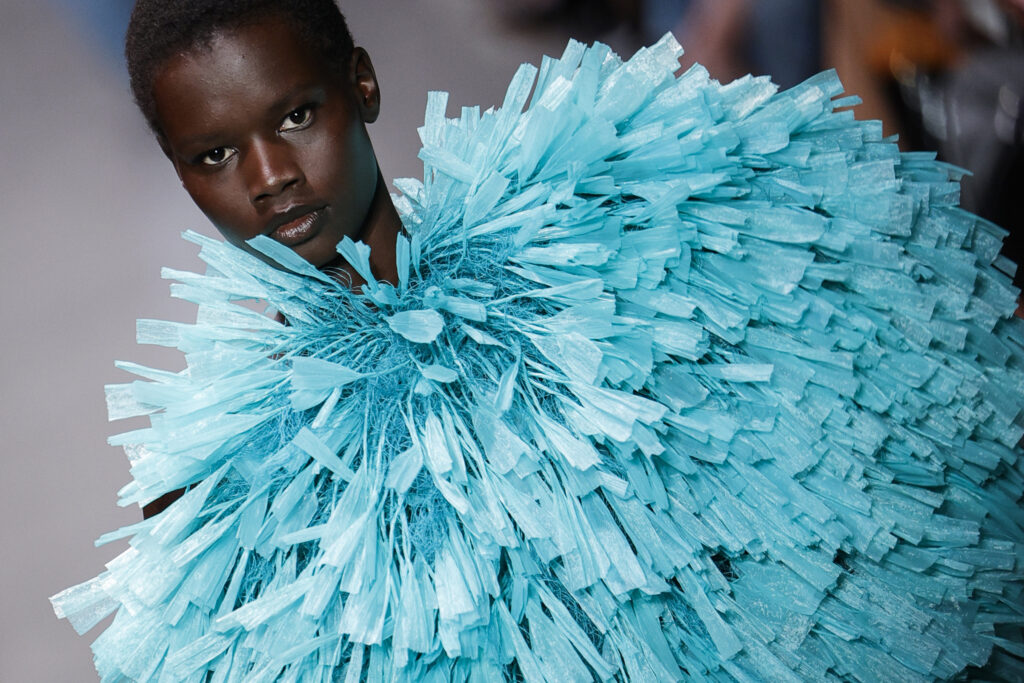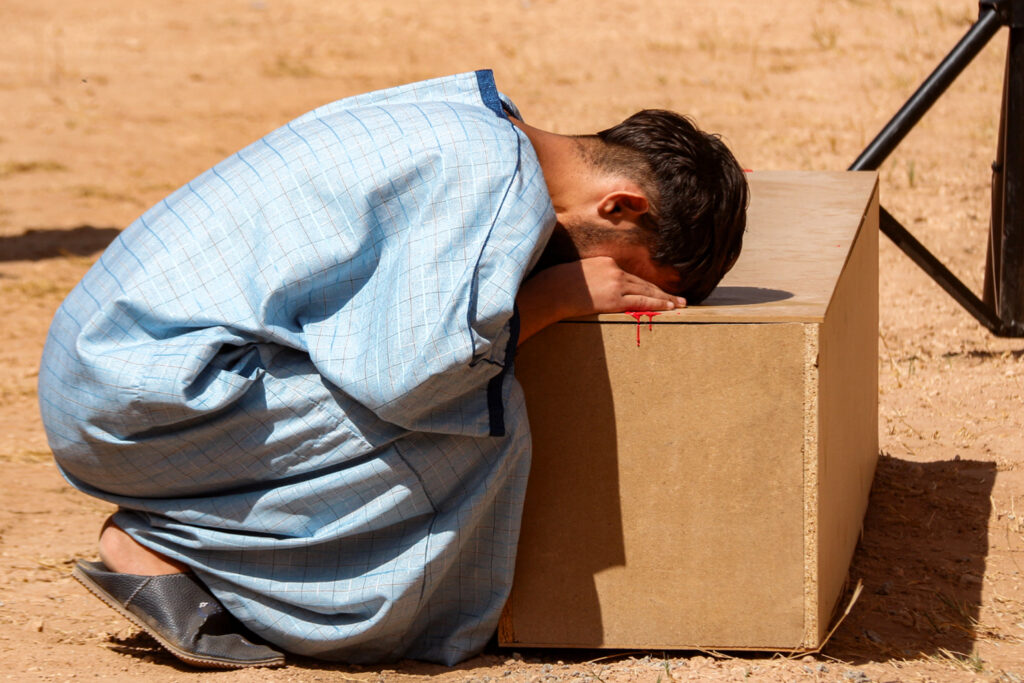Face à la carpe asiatique, le Canada et les Etats-Unis résistent aux divisions politiques
Dans la région des Grands Lacs, à cheval entre le Canada et les Etats-Unis, une cause unit le président Donald Trump, ses opposants démocrates et les Canadiens qu’il menace d’annexer: la lutte contre la carpe asiatique, espèce invasive, qui menace l’équilibre écologique de cette immense réserve d’eau douce. Introduite aux États-Unis dans les années 1970 pour contrôler les algues dans les étangs d’aquaculture, la carpe asiatique a progressivement migré vers le nord, probablement lors d’inondations.Depuis, elle n’a cessé de se propager et de dévorer tout sur son passage.”Ce sont de véritables machines à tout dévorer”, explique Trisiah Tugade, biologiste aquatique au sein du programme canadien dédié à cette carpe envahissante.À bord d’un bateau embarqué sur la rivière Grand, affluent du lac Érié, elle traque avec son équipe ces poissons capables de ravager les écosystèmes.Sa progression via la rivière Illinois suscite des inquiétudes: si elle atteignait les Grands Lacs, ce serait un cauchemar écologique pour le plus grand système d’eau douce au monde.”Rien ne fait plus peur aux défenseurs de l’environnement que l’idée de voir ces carpes établir une population reproductrice dans les Grands Lacs”, estime Mike Shriberg, spécialiste de la politique de l’eau à l’Université du Michigan.Alors, des équipes canadiennes inspectent les affluents des Grands Lacs, ciblant les zones propices à la reproduction: eaux chaudes, peu profondes, riches en végétation.Sur la rivière Grand, Trisiah Tugade et son collègue biologiste Alex Price dirigent une opération de pêche électrique. Des perches immergées diffusent des impulsions sans danger qui étourdissent les poissons pour faciliter leur capture.Les spécimens sont ensuite identifiés, mesurés, et relâchés s’ils ne sont pas jugés envahissants.Depuis le lancement du programme en 2012, seules quelques dizaines de carpes ont été capturées dans les eaux canadiennes.- Centaines de milliers d’œufs -James Hall, pêcheur professionnel sur le lac Érié, se souvient avoir été l’un des premiers à en attraper une: “Je me demandais ce que c’était. Je savais que c’était un poisson inhabituel”, raconte-t-il. Il l’a conservée sur glace et a alerté les autorités via la ligne dédiée.Depuis la vigilance reste de mise. “Ces poissons peuvent se reproduire plusieurs fois par an et pondre des centaines de milliers d’œufs”, souligne Alex Price.Dès leur première année, ils deviennent trop gros pour les prédateurs naturels.La menace est telle que cette lutte contre les carpes asiatiques continue à recevoir un soutien bipartisan, notamment dans des Etats américains clés comme le Michigan, l’Ohio ou la Pennsylvanie.Pour Mike Shriberg, les Grands Lacs sont un “facteur d’unité” entre les partis américains mais aussi entre les deux pays.Une note de la Maison Blanche signée par Trump en mai, réaffirmant son engagement contre “la menace économique et écologique des carpes envahissantes”, a été saluée par tous.”Dans un climat politique extrêmement polarisé, ce soutien discret montre le rôle unique des Grands Lacs dans la politique américaine”, estime le chercheur. Les tensions commerciales et les menaces d’annexion ont fragilisé les relations bilatérales entre les deux voisins nord-américains. Et plus tôt cette année, Donald Trump aurait même déclaré à l’ancien Premier ministre Justin Trudeau qu’il souhaitait réviser les traités régissant les Grands Lacs.Dans ce contexte, l’avenir est incertain et “l’hostilité de l’administration Trump envers le Canada pourrait tout compromettre”, ajoute Mike Shriberg.Pourtant si la carpe envahissante venait à s’installer durablement, les conséquences seraient graves et imprévisibles.”Cela bouleverserait l’équilibre écologique, prévient-il. Une fois dans les lacs… je ne crois pas qu’il serait possible de les éradiquer.”
La tendance mode des plumes à l’épreuve du bien-être animal
Prisées par les créateurs lors des défilés, les plumes soulèvent des questions éthiques sur l’élevage intensif, incitant des stylistes comme Stella McCartney à développer des alternatives végétales, encore rares dans un secteur lent à faire évoluer.”Cela fait plus de 30 ans que je milite pour que l’on ne tue pas de vaches, de chèvres, de serpents ou tout autre animal vivant pour en faire des chaussures ou des sacs à main dans mon secteur”, a rappelé la créatrice britannique à l’AFP mardi soir à l’issue de son défilé lors de la Fashion Week de Paris. “Mais je me suis rendu compte il n’y a pas si longtemps que les plumes constituaient un autre aspect barbare de l’industrie”, a-t-elle affirmé.Si certaines espèces, comme les aigrettes, les oiseaux-lyres ou les perruches, sont aujourd’hui protégées, l’industrie continue néanmoins de recourir massivement aux plumes, principalement celles d’autruches, élevées dans des conditions dénoncées par les associations de défense animale.”Les plumes utilisées dans la mode sont arrachées à des oiseaux comme les autruches, les poulets, les dindes ou les canards, dont beaucoup passent toute leur vie confinés dans des fermes-usines ou sur des terrains boueux”, explique Yvonne Taylor, porte-parole de Peta Royaume-Uni. Stella McCartney a choisi de proposer une alternative végétalienne, comme elle le fait déjà pour le cuir et les peaux exotiques.- Des alternatives coûteuses -Lors de son dernier défilé parisien, elle a présenté les “Fevvers”, de fausses plumes fabriquées par une start-up britannique à partir d’herbe cultivée et teinte naturellement, cousues à la main sur robes et bustiers pastel. “On obtient le même effet (que des plumes), sans tuer des milliards d’oiseaux”, assure la fille de Paul McCartney.Une initiative intéressante même si le véritable changement interviendra quand les grandes maisons de mode s’engageront, selon Dana Thomas, autrice du livre “Fashionopolis” sur l’impact environnemental de l’industrie de la mode.Stella McCartney “n’a ni le poids ni les fonds pour acheter en grande quantité et transformer réellement le paradigme des biomatériaux”, souligne la spécialiste.Selon elle, de nombreuses alternatives aux produits animaux ou pétroliers existent déjà, mais les grandes maisons rechignent à les adopter, freinées par le coût plus élevé et un manque de volonté de recherche et développement.”Alors que la mode est censée être une industrie qui définit les tendances et nous informe de ce qui se passe dans notre culture, elle est en réalité très démodée”, déplore Mme Thomas. La campagne pour réduire l’usage des plumes dans la mode commence toutefois à porter ses fruits.Plusieurs Fashion Weeks secondaires, à Amsterdam, Melbourne ou Berlin, ont déjà interdit les plumes sauvages, en plus de la fourrure. Mais les plus prestigieuses – Paris, New York, Londres et Milan – continuent de les autoriser.Stella McCartney reconnaît que les “Fevvers” en sont encore au stade expérimental. La start-up qui les produit aura besoin de soutien financier et, éventuellement, de changements réglementaires, comme l’interdiction des plumes animales, pour se développer pleinement. “Il est vraiment intéressant de constater que cette technique ne peut pas être mise en production, alors que le massacre de nombreux oiseaux dans un bâtiment quelque part est en cours de production”, a-t-elle déploré.
Erasmus proud of Boks’ title triumph as Rugby Championship faces uncertain futureSun, 05 Oct 2025 13:39:02 GMT
South Africa coach Rassie Erasmus said it meant a “hell of a lot” for the Springboks to have won back-to-back Rugby Championship titles for the first time following a hard-fought victory over Argentina at TwickenhamSaturday’s 29-27 success, built on a dominant scrum with hooker Malcolm Marx scoring two tries, in the final match of the …
La sensibilité des plantes revient au goût du jour
Se tourner vers le soleil pour en capter les rayons, s’agripper à une clôture pour continuer de grimper: les plantes aussi ont leur sensibilité, bien différente de celle des humains, une spécificité qui attire les chercheurs ces dernières années.”Ce qu’on entend par sensibilité, ce n’est pas le fait que les plantes ont des émotions ou des sentiments comme les humains. C’est le fait qu’elles reçoivent des informations de leur environnement de manière précise, continue et dynamique, et que ces informations vont les amener à avoir des réactions, visibles ou non à nos yeux”, explique à l’AFP Delphine Arbelet-Bonnin, docteure en biologie cellulaire et co-autrice de “Sensibles par nature”, un livre paru début octobre chez Ulmer.L’idée n’est pas nouvelle – le Britannique Charles Darwin ou le Français Claude Bernard l’ont avancée au XIXe siècle – mais les progrès de la biologie moderne la confirme jour après jour.Capter les messages dans l’air, toucher sans peau ni doigts, dialoguer secrètement par les racines, vibrer au rythme des bruits alentours… La gamme des sensibilités est riche.Mais comment les plantes, dépourvues par essence de système nerveux, font-elles ?Pour comprendre, il faut zoomer jusqu’aux capteurs placés sur les membranes entourant leurs cellules.C’est là que les plantes réceptionnent les informations provenant de leur environnement, qu’elles transforment en signaux électriques.Prenons l’exemple de la Drosera tokaiensis – la rosée du Tokaï – une jolie plante carnivore à la fleur violette: lorsqu’elle perçoit qu’une chenille affamée est en approche, elle est parcourue de signaux électriques.Ces signaux “ne sont pas exactement les mêmes que ceux qui parcourent le système nerveux des animaux, mais ils en sont très proches”, explique la biologiste. Dans le même temps, les phytohormones – les hormones chez les plantes – véhiculent également des informations dans tout l’organisme.Ces signaux électriques et ces hormones vont entraîner de manière diffuse dans l’organisme des réactions biochimiques “qui vont orienter la croissance, le métabolisme”.Et dans le cas de notre rosée du Tokai, lui intimer l’ordre de refermer ses pétales, afin de protéger de la voracité de la chenille ses organes reproducteurs.- Cécité végétale -Le tournesol, qui se tourne ostensiblement vers le soleil, la bryone, le lierre ou le haricot, qui grimpent à n’en plus finir, ou encore cette incroyable Alsomitra macrocarpa, une plante japonaise dont les graines ailées planent sur plusieurs mètres au moment de la libération des fruits, sont autant d’exemples de sensibilité végétale très visibles à l’oeil nu. Mais généralement, c’est la “cécité végétale” – conceptualisée en 1986 par le botaniste américain James Wandersee – qui l’emporte.”On a tendance à voir ce qui va bouger – les animaux – ou ce qui va faire du bruit – les oiseaux qui chantent. Les plantes sont moins mobiles, elles ne sont pas dans la même échelle de temps que nous, donc on fait moins attention”, souligne Delphine Arbelet-Bonnin.Les regards évoluent pourtant “depuis une vingtaine d’années”, note Lucia Sylvain Bonfanti, co-autrice du livre, qui termine cette année sa thèse sur la sensibilité des plantes après un parcours pluridisciplinaire alliant psychologie, neurosciences, biologie cellulaire et géographie. “En anthropologie, en géographie, notamment, on recommence à parler de la sensibilité des plantes, de leur capacité d’agentivité – être maître de soi – de leur façon de communiquer, de ce rapport qu’on a à elles aussi. C’est un tournant végétal qu’on voit dans les sciences humaines et sociales, mais qu’on voit aussi dans l’art, notamment le théâtre et la poésie”, souligne-t-elle.Le Covid, notamment, est passé par là.”Récemment, une étude menée en Grande-Bretagne a montré après le confinement un intérêt croissant des gens pour les plantes, les jardins, parce que c’est assimilé au bien-être et à un retour à la nature”, rappelle Delphine Arbelet-Bonnin.
Mourning and shock in Morocco after student killed in protests
Like many in Morocco, Abdelkabir Oubella had been watching videos of protests unfold across the country, but nothing could prepare him for the shock of discovering that his son was among three shot dead in the unrest.For more than a week, Morocco has been shaken by daily protests led mostly by young people demanding reforms in the North African country’s struggling health and education systems.The unprecedented movement erupted after the deaths of eight pregnant women admitted for Caesarean sections at a public hospital in Agadir, sparking outrage over deteriorating public services.Abdessamad Oubella, a 25-year-old film student, was killed overnight Wednesday to Thursday in Lqliaa, near Agadir in southern Morocco. Two other people were also shot dead by police.Authorities said a group had tried to attack the security forces to “steal” ammunition and weapons.”I came across a video where my son appeared — I didn’t even know it was him,” Abdelkabir Oubella told AFP.Surrounded by men from his village of Adouz Oussaoud, near Lqliaa, the 51-year-old day labourer had just buried his son in a wooden coffin.”We never imagined this could happen,” said Ayoub, Abdessamad’s brother.”My brother was there to document what was happening,” he said. “He didn’t throw stones, he didn’t take part in the unrest.”According to his father, Abdessamad was struck by a bullet to the head.The protests have been organised through a newly formed collective on the Discord web platform called GenZ 212, which has again called for rallies on Sunday night in 22 cities.- ‘Troublemakers’ -Life is modest and many people are day labourers in Lqliaa and in nearby Adouz Oussaoud, which lie in one of Morocco’s main agricultural regions and are known for tomato cultivation.In Adouz Oussaoud, a wall bears a large mural reading “Don’t open, dead inside” — a reference to the hit zombie TV series “The Walking Dead”.Among residents, sadness and disbelief prevail after the violence.Those interviewed by AFP said they supported calls for reforms in health and education — sectors that reflect Morocco’s deep inequalities — but condemned the unrest.”Health and education services here are not adequate for the size of the population. We need more support in both sectors,” said Hassan Garir, 39, of Lqliaa.”But when I saw what was happening on social media, I couldn’t sleep that night.”It’s tragic,” he said.”What those troublemakers did has nothing to do with expressing legitimate demands.”Abdessamad’s father agreed, saying “we are against vandalism and ignorance”.That night, CCTV footage released by authorities showed masked youths armed with iron bars and stones trying to force open a door.Security forces fired tear gas to disperse them, but the attackers returned and set fire to bins and tyres at the entrance of the building.The GenZ 212 collective says it only calls for non-violent protests.On Sunday, it urged supporters to speak with “one voice” and maintain “peaceful and responsible behaviour”.



